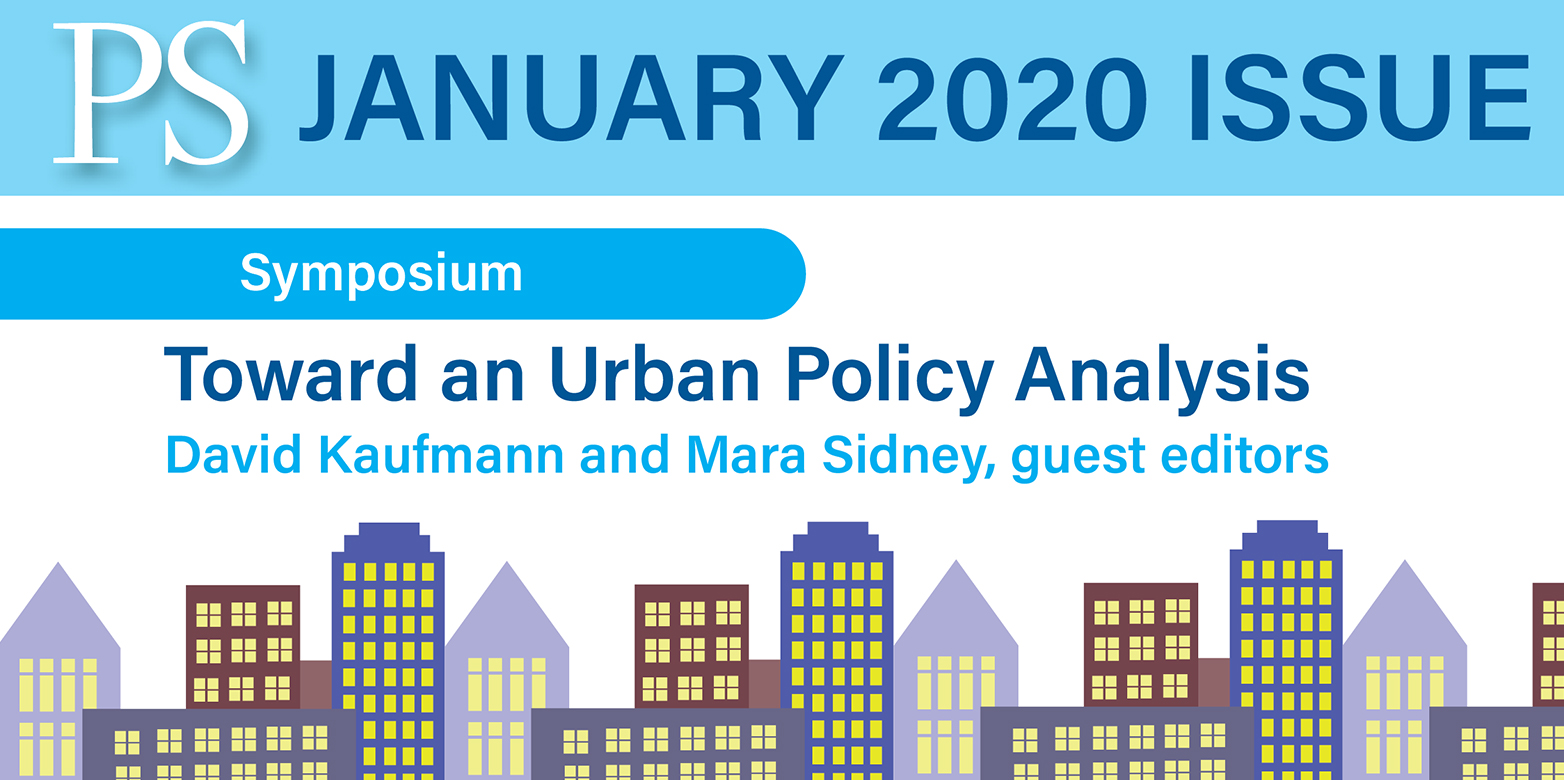Symposium: Toward an Urban Policy Analysis - Incorporating Participation, Multilevel Governance, and “Seeing Like a City”
A recent publication on PS: Political Science & Politics by ETH Prof. David Kaufmann and Prof. Mara Sidney from Rutgers University-Newark on urban policy-making. This symposium suggests that to understand contemporary societal transformation — and political and policy processes more generally — the policies that cities create and implement are essential objects of study.

The authors in this symposium explore three dimensions that may be suitable as building blocks of an urban policy analysis. First, urban policy analysis grapples with participation in the policy process. The density of the urban political arena and the immediacy of policy problems can result in a diverse set of actors from the public, private, and nonprofit or community sectors that aim to influence problem solving. Second, an urban policy analysis examines and can theoretically advance our understanding of the multilevel nature of governance. Government actors, social movements, institutions, and laws exert influence and strategically intertwine among and across levels of local, national, and supranational government. Third, an urban policy analysis would explicitly theorize “the urban.” That is, scholars increasingly argue that “the urban” is a political arena that transcends geography, speaking rather to a mode of politics and daily life that is characterized by diversity, complexity, chaos, flexibility, and ongoing change.
The contributions draw on insights from urban studies, urban politics, and public policy and apply them to original empirical work. These subfields share an awareness of complexity and a related openness to interdisciplinarity that could lead to more explicit dialogue. It seems that an urban policy analysis is an interdisciplinary endeavor. The problems that policy seeks to address, and the urban environments that scholars seek to understand, emerge from complex webs of factors that often can be understood only through interdisciplinary inquiry.
The contributions offer analyses of a range of geographic sites and city types, including large and midsized cities in North America, Europe, and Latin America. They include cases in which cities actively make policies in the absence of, complementary to, or opposed against policies at other governmental levels, such as migration1,2 and digitization3. The symposium concludes with an article provoking us to “see like a city” such that research would challenge the entrenched statism of political concepts and theories to account for a wider variety of urban experiences and political processes4.
References
1 Bazurli, R. (2020). How “Urban” Is Urban Policy Making?. PS: Political Science & Politics, 53(1), 25-28.
2 Williamson, A. F. (2020). Intergovernmental Policy Feedback and Urban Responses to Immigrants. PS: Political Science & Politics, 53(1), 20-24.
3 Bramwell, A. (2020). Innovation and the “Ordinary” City? Urban Policy Making in a Digital Age. PS: Political Science & Politics, 53(1), 15-19.
4 Enright, T. (2020). Beyond Comparison in Urban Politics and Policy Analysis. PS: Political Science & Politics, 53(1), 29-32.
You can find the symposium online on external page PS: Political Science & Politics.